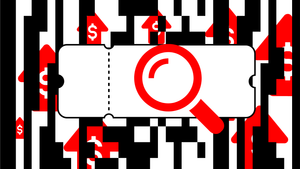The American ticketing business will face what could be the closest scrutiny it has ever experienced via a new public inquiry announced by the US Department Of Justice and Federal Trade Commission yesterday, which will aim “to identify unfair and anticompetitive practices and conduct in the live concert and entertainment industry”.
The wide ranging inquiry follows the executive order on ticketing issued by President Donald Trump back in March. In a statement announcing the inquiry yesterday, FTC Chairman Andrew N Ferguson says, “President Trump has sent a clear message that bad actors who exploit fans and distort the marketplace will not be tolerated”, while Abigail Slater at the DoJ adds, “competitive live entertainment markets should deliver value to artists and fans alike”.
Live Nation’s lobbyists will presumably be working overtime to ensure that the focus of the inquiry is the secondary ticketing market, rather than the practices of its primary ticketing platform Ticketmaster. And Live Nation’s critics will try to ensure that both primary and secondary ticketing are in the spotlight.
The DoJ, of course, is already suing Live Nation for alleged violations of competition, or antitrust, law - even proposing that the 2010 merger of Live Nation and Ticketmaster should be reversed - and that ongoing legal action is specifically referenced in the announcement of the public inquiry.
Meanwhile, in her statement, Slater, who is Assistant Attorney General of the Justice Department’s Antitrust Division, also said, “We will continue to closely examine this market and look for opportunities where vigorous enforcement of the antitrust laws can lead to increased competition that makes tickets more affordable for fans while offering fairer compensation for artists”.
However, FTC Chair Ferguson does hone in on ticket touting, or scalping, in his statement about the inquiry, saying “many Americans feel like they are being priced out of live entertainment by scalpers, bots and other unfair and deceptive practices”.
That said, the FTC already has a role in stopping scalpers from using bots - ie special software to access tickets from primary sites - so it’s perhaps no surprise that scalping was his focus. And those “unfair and deceptive practices” he mentions could also be occurring on the primary sites too.
Most regulation of ticketing in the US happens at a state level. Though there is the US-wide BOTS Act, which prohibits use of bots by scalpers, and which is enforced by the FTC. There have also been multiple proposals in Congress in recent years for new US-wide laws regulating ticketing, including the TICKET Act that recently passed the House Of Representatives.
Meanwhile, under the Biden presidency, an executive order was issued ordering all-in pricing, so that ticketing companies must declare upfront the full price of a ticket, including any fees and commissions. And it was on Biden’s watch that the DoJ launched its anti-trust lawsuit against Live Nation.
Live Nation generally supports all-in pricing, but when it comes to other regulation of ticketing it is keen for the focus to be on scalpers and secondary ticketing, even though it does still provide resale services in the US market. In that domain, it has supported a ban on speculative selling, where scalpers advertise tickets they are yet to secure, and has even indicated it supports the idea of a resale price cap.
While Live Nation may well genuinely want more regulation of resale, persuading lawmakers to focus on the scalpers also conveniently makes them less likely to consider issues around primary ticketing, and criticism of the dominant position of Live Nation and its Ticketmaster subsidiary.
Obviously, that is very much in the spotlight in the DoJ’s antitrust litigation, but optimists at Live Nation were hopeful that, once Trump was President, the DoJ would become less interventionist on competition issues and might be easily talked into settling that legal action.
So far that hasn't happened, the DoJ litigation is proceeding and some of the language in Trump’s executive order that prompted the public inquiry could be seen as targeting Live Nation.
The Attorney General and the Federal Trade Commission must “ensure that competition laws are appropriately enforced in the concert and entertainment industry, including where venues, ticketing agents, or combinations thereof operate to the detriment of artists and fans”, the President wrote.
That said, more of the executive order was focused on scalpers. The direction this new public inquiry takes will give us some indication on the extent to which the Trump administration is willing to intervene in the ticketing business beyond resale.

